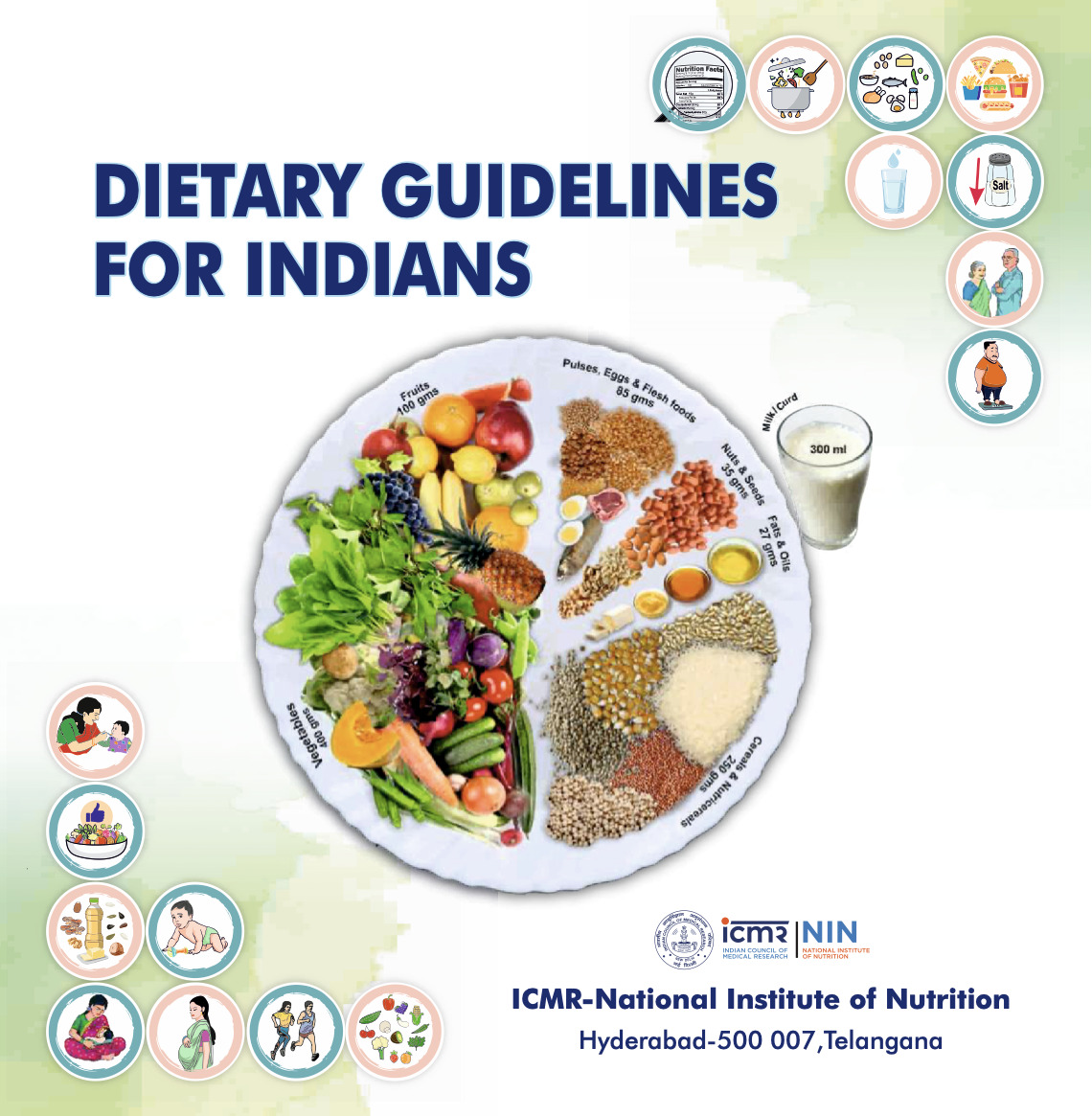The National Institute of Nutrition (NIN), under the Indian Council of Medical Research (ICMR), has released updated "Dietary Guidelines for Indians" aimed at addressing the country's unique nutritional challenges. These comprehensive guidelines come at a crucial time when India faces a dual burden of undernutrition and rising obesity rates.
According to the new guidelines, a balanced diet, rich in diversity and essential nutrients, plays a pivotal role in health and disease prevention. The publication stresses the importance of incorporating a variety of food groups into daily meals, including cereals, pulses, vegetables, fruits, and animal products, to ensure comprehensive nutrient intake.
Key Points of the Guidelines:
- Variety and Moderation: Emphasis on a varied diet that includes all food groups to ensure balanced nutrition. Moderation in the consumption of fats, sugars, and salt is advised to prevent lifestyle-related illnesses.
- Focus on Undernutrition and Obesity: The guidelines address the persistent issues of undernutrition, particularly in children, while also tackling the growing obesity epidemic through educated food choices and lifestyle changes.
- Importance of Physical Activity: Regular physical activity is highlighted as a crucial component of maintaining a healthy lifestyle, alongside proper diet.
- Special Nutritional Needs: Detailed recommendations are provided for different demographic groups, including pregnant women, children, adolescents, and the elderly, tailoring nutritional advice to their specific health requirements.
- Food Safety: With the rise in food-borne illnesses, the guidelines emphasize the importance of consuming safe and clean foods.
Dr. Hemalatha R., Director of ICMR-NIN, stated, "These guidelines are not just about advising what to eat and what not to eat. They are about empowering Indians with knowledge to make informed food choices that lead to better health outcomes."
The guidelines also recommend minimizing the intake of highly processed foods, which are often laden with unhealthy fats, sugars, and salts. Instead, they promote foods that are both nutrient-dense and culturally appropriate, ensuring that traditional dietary practices are respected and maintained.
Implementation Through Education: The success of these guidelines hinges on effective dissemination and education. The NIN plans to collaborate with various stakeholders, including government and non-governmental organizations, to promote these guidelines across diverse Indian communities through innovative education and communication strategies.
As India continues to navigate its complex nutritional landscape, these updated guidelines offer a beacon of hope and a practical roadmap for healthier living across all segments of the population.
To learn more about the "Dietary Guidelines for Indians," please click here.
